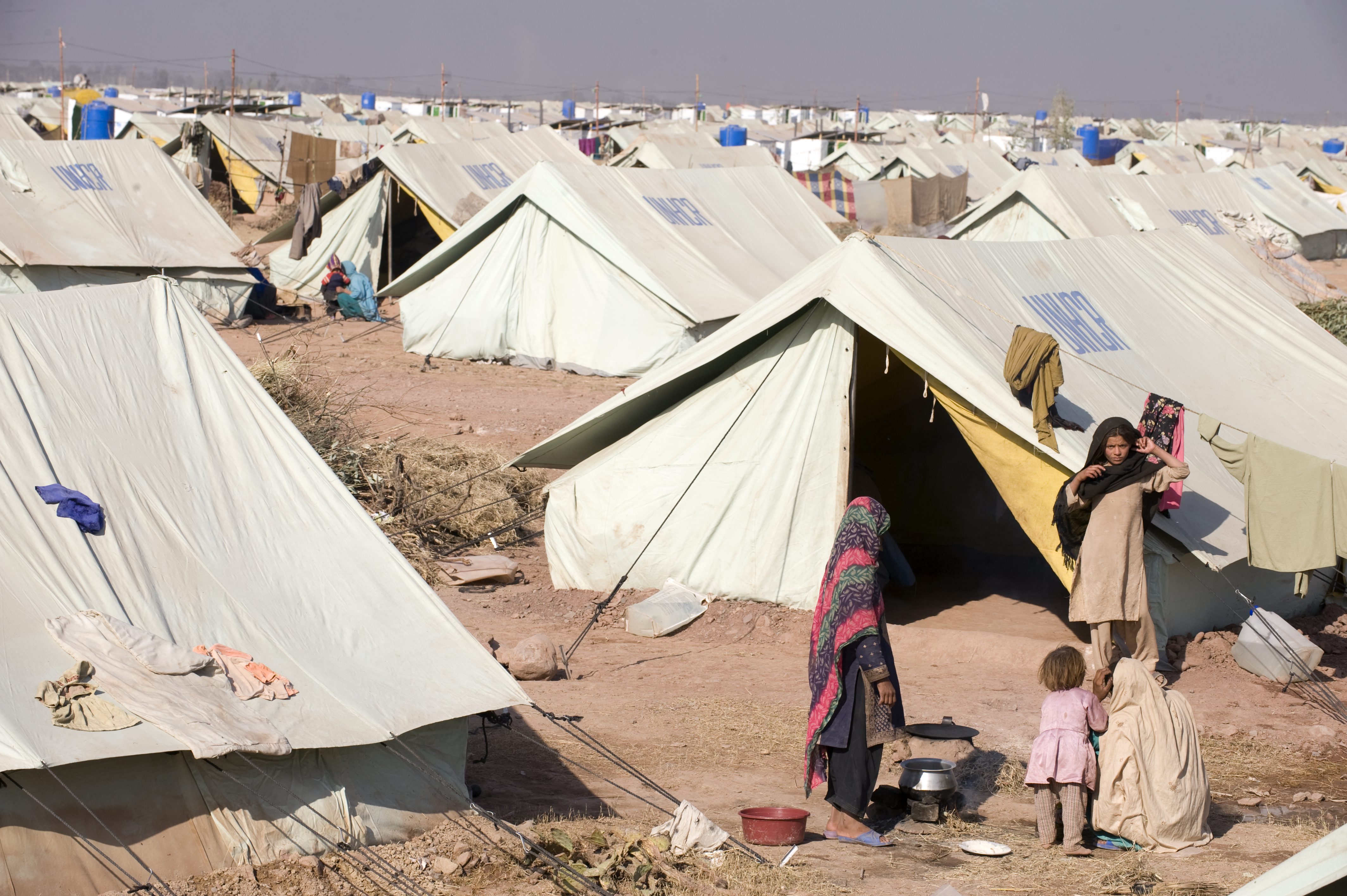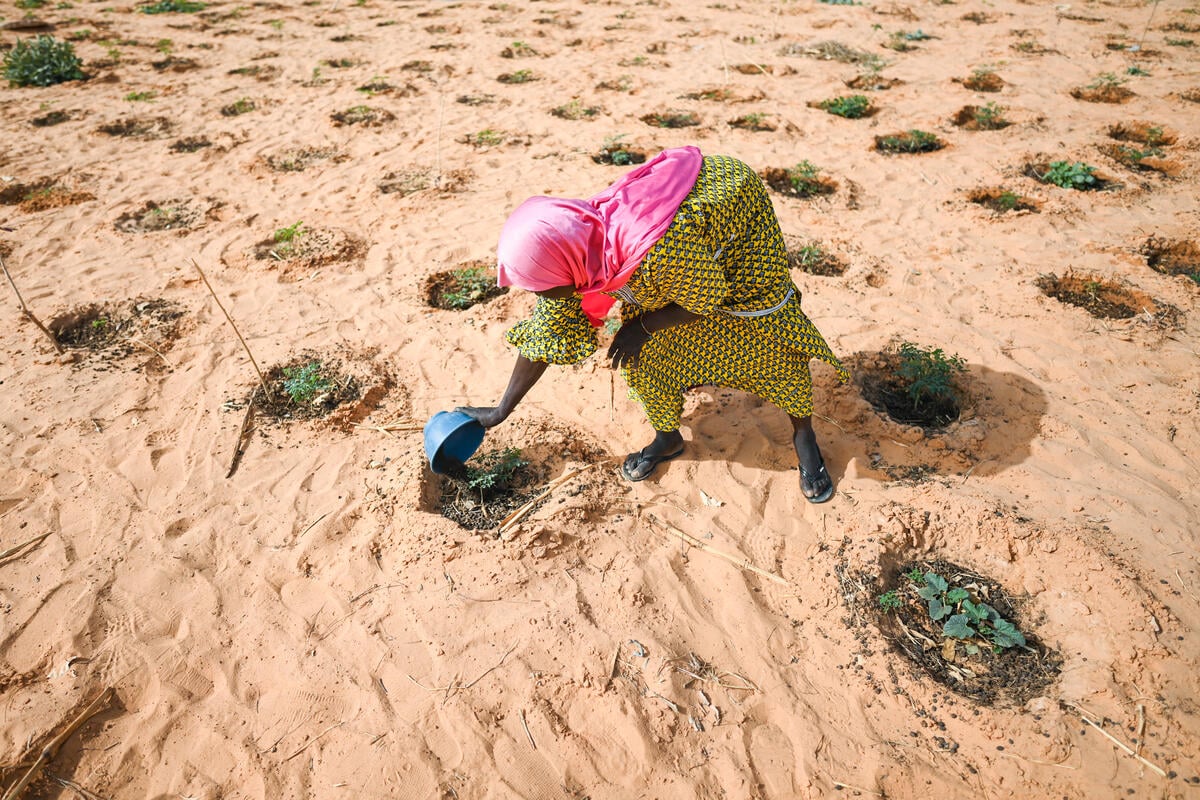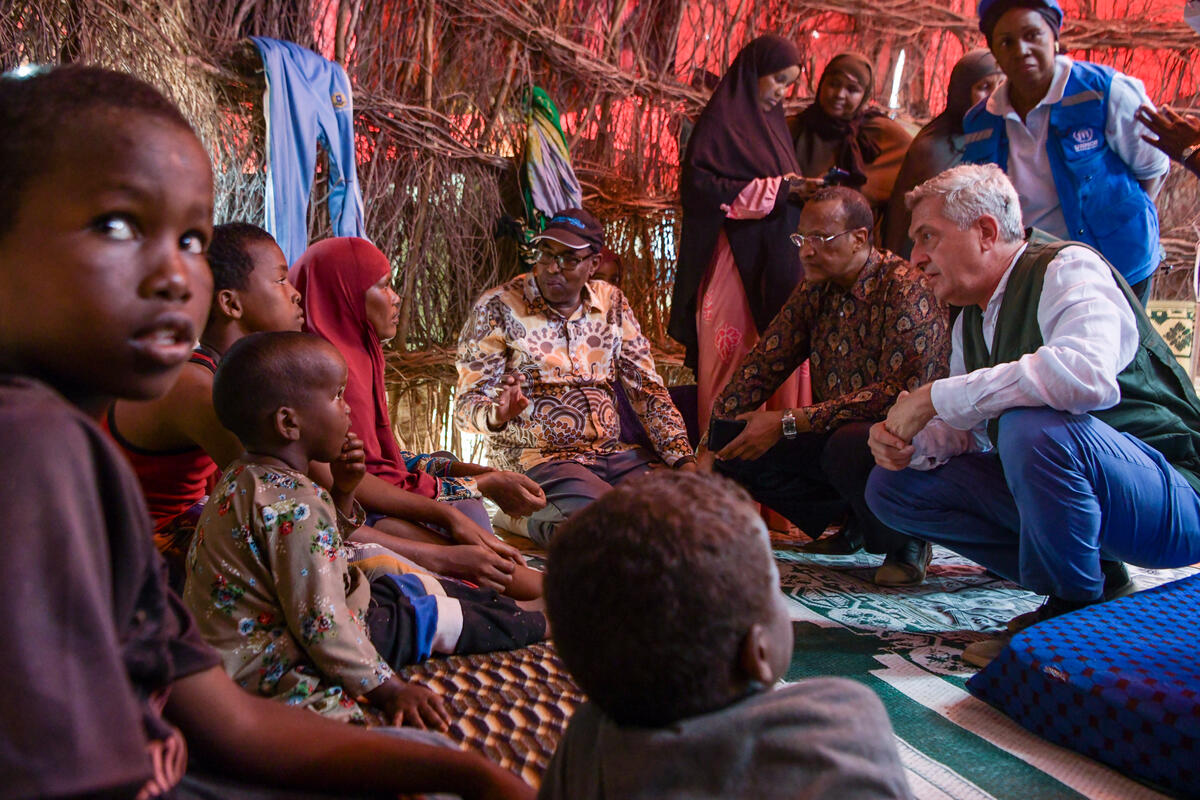Pakistani civilians flee to safety amid fears of fresh fighting in Waziristan
Pakistani civilians flee to safety amid fears of fresh fighting in Waziristan

ISLAMABAD, Pakistan, October 16 (UNHCR) - More than 20,000 people have fled their homes in northern Pakistan in recent days to escape an anticipated military push against insurgents in the rugged and volatile border region of South Waziristan.
Since early this week, an estimated 24,000 people from South Waziristan, comprising about 3,300 families, have arrived in neighbouring Dera Ismail Khan and Tank. Local officials have registered more than 1,600 of these families over the past four days. This brings the number of people who have fled to the two districts from South Waziristan since May to more than 100,000.
While some of the movement may be seasonal migration, most families say they are fleeing expected bombardments. If full-scale military operations are launched, the numbers of displaced people are likely to rise significantly. The people who arrived earlier in the two North West Frontier Province districts are staying with host families or in rented accommodation.
As part of an inter-agency effort, UNHCR has been working with local partners to distribute relief supplies, including plastic sheets, sleeping mats, jerry cans and kitchen sets, to displaced people from South Waziristan. In September, the agency distributed relief items to more than 6,500 people through our local partners.
But the key challenges to distribution are security and humanitarian access to people. "We don't expect further outflows of people on the scale that we saw coming out of Swat, Buner, Shangla and Dir [districts further to the north] earlier this year, when more than 2 million people had fled their homes. But there will be additional operational challenges because of the volatile security environment in areas of displacement as well as in South Waziristan itself," UNHCR spokesman Andrej Mahecic told journalists in Geneva on Friday.
Due to security concerns, UN agencies have established a joint humanitarian hub in Bakhar, across the Indus River from Dera Ismail Khan in the Punjab province, and UNHCR is distributing relief through local partners.
Meanwhile, there are fresh waves of displacement from Bajaur agency, located in the Federally Administered Tribal Areas like South Waziristan, with reports that an estimated 1,000 families have left the area. Of these, some 500 families could be located at Wali Kandow camp in neighbouring Lower Dir district. UNHCR is sending tents to accommodate the new arrivals.
The fragile security situation in Pakistan continues to hinder UNHCR's humanitarian operations in the country, including the ability to assess needs, and provide and monitor relief assistance." We have had to adjust our operations in the wake of attacks on UN staff and general insecurity, but we are committed to continuing our work to help displaced people in Pakistan," said the spokesman.
By Ariane Rummery in Islamabad, Pakistan








